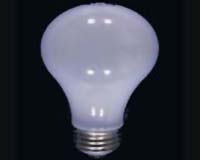 |
Hanover, Germany (UPI) Sep 1, 2009 Germany is building a geothermal power plant in Lower Saxony, where conditions were previously considered less than ideal. The 2 MW plant, called GeneSys, will rely on a 2.5-mile-deep well to be drilled near Hanover, in northwestern Germany. So far, Germany has only three large-scale geothermal power plants in operation. This is not without reason. In Iceland, for example, an array of active underground volcanoes heat up the earth even in low depths. That means you don't have to drill deep in order to harvest the heat from the earth's interior. Some 90 percent of Iceland's heating needs is met by geothermal power plants. Not so in Germany. Here, you have to drill deep, which dramatically increases costs connected to geothermal energy. But a group of scientists working for a German government agency has now launched GeneSys, a plant with a one-well pumping system that has significantly reduced drilling costs, the online version of German news magazine Der Spiegel reports. Because of its groundbreaking pumping infrastructure, the entire plant will cost only half of what is usually needed -- some $13 million. It is aimed at outfitting that agency with 2 MW of heating energy starting in 2013. Over the course of its projected 25-year lifetime, GeneSys will save the agency $21 million in heating costs, the experts claim. That would mean a significant cost-benefit improvement tied to an energy source that is renewable and unlike solar or wind energy always available. If GeneSys proves economically and technically sound, the project could be exported to other countries in Europe, the scientists say. "A geological structure like the one in Hanover can be found on a wide area that stretches east-west from Poland to Britain and north-south from Denmark until the northern part of the Harz mountain," Michael Kosinowski, the geologist in charge of GeneSys, told Spiegel Online. Geothermal power plants rely on a heat flow system that pumps water downward into a well drilled into the ground. The high temperatures below heat up the water, which is then pumped back up to emit heat or produce electricity via a steam turbine. GeneSys is special in that it only needs one hole, instead of two to pump the water down and back up. That means drilling costs can be slashed in half. In Germany, geothermal energy is usually confined to small-scale pumps that rely on wells shortly below the surface. However, drilling for some of those systems have caused seismic disruptions and land instability. In Staufen, southwestern Germany, the ground subsided in connection with the construction of a local geothermal plant. A plant project in Basel, Switzerland, was suspended because more than 10,000 seismic events measuring up to 3.4 on the Richter scale occurred over the first days of water injection. Share This Article With Planet Earth
Related Links Powering The World in the 21st Century at Energy-Daily.com
 EU bans Edison's light bulbs
EU bans Edison's light bulbsBrussels (UPI) Aug 28, 2009 In Europe, the traditional light bulb perfected by American scientist Thomas Edison 130 years ago will soon be a remnant of the past. The European Union is banning the production of 100-watt incandescent light bulbs starting Tuesday in a bid to introduce compact fluorescent models, widely known as energy-savings bulbs. The move is in line with Brussels' plan to reduce the ... read more |
|
| The content herein, unless otherwise known to be public domain, are Copyright 1995-2009 - SpaceDaily. AFP and UPI Wire Stories are copyright Agence France-Presse and United Press International. ESA Portal Reports are copyright European Space Agency. All NASA sourced material is public domain. Additional copyrights may apply in whole or part to other bona fide parties. Advertising does not imply endorsement,agreement or approval of any opinions, statements or information provided by SpaceDaily on any Web page published or hosted by SpaceDaily. Privacy Statement |